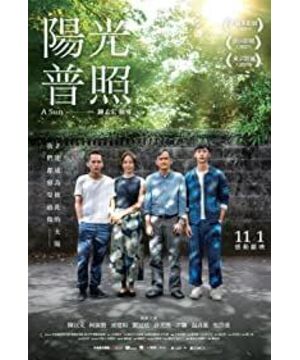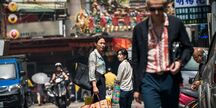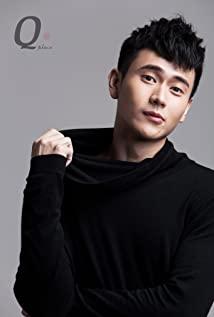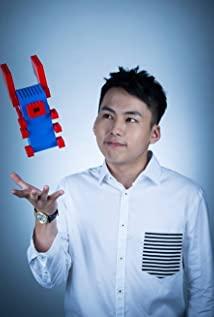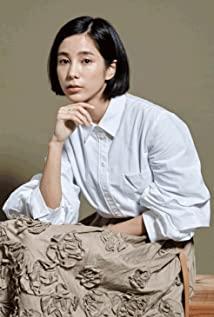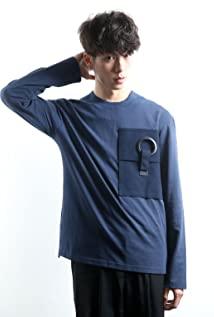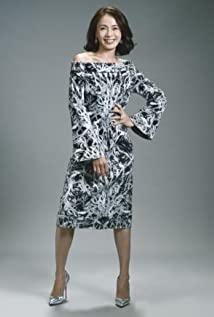I have seen director Zhong Menghong's works "Lost Soul", "The Fourth Picture", "Smooth Sailing", "Big Buddha Plath", etc. Most of them tend to be dark, making joy in bitterness, and exploring the relationship between people that is insipid and almost tortured , or in the absurd world, describe the daily life of little people who can't laugh or cry. This time, Director Zhong used the real experience of his classmates as the prototype of the script, and made it into the movie "The Sunshine". The plot is full of dark humor and grim reality. After careful tasting, you will be moved by the hope contained in the movie. After the director set a high standard for the male film "Yi Yi" at the end of the last century, it is the closest Taiwanese film to it, although "The Sunshine" has a slightly smaller format...
"The Sunshine" was selected for the 2019 Toronto International Film Festival, Busan International Film Festival and Tokyo International Film Festival, and was nominated for 11 nominations at the 56th Golden Horse Awards, and finally won the best film, director, leading actor, supporting actor, editing. and six awards including the Audience Choice Award. The American Entertainment Weekly's "Variety" (Variety) film critics selected as the first place in the top ten movies in 2020, and the senior film critics of the film review website Indiewire specially introduced.
[Sunshine and shadow are born together, constantly changing and overlapping]
The story begins with a family. His father, Chen Yiwen, is a driving class instructor. He has two sons, Jianhao and Jianhe (played by Xu Guanghan and Wu Jianhe), and his mother (played by Ke Shuqin) is a good mother and a professional woman. The younger brother Jianhe was discriminated against by his father and neglected, and his elder brother was too good, so he turned to seek out Caitou (played by Liu Guanting) like his righteous brother to keep warm. trouble. The title of "The Sunshine" is the plot of the brothers rushing to the hot pot restaurant with knives on a typhoon day to hack at the black wheel (played by Zhang Lidong) who is having a holiday. It was one of the three most bloody and violent scenes in the whole film, but the image processing was very quiet, and the sound of wind, rain and music was gentle. style of. In this film, Nakajima (Director Zhong), who also serves as the director and photographer, shot the road wet by the rain with neon lights, making it a cyberpunk-like apocalyptic beauty, infinitely beautiful.
With the development of the story, when Ah He was first in prison, he still kept making a mess for his parents, because the parents of the Chen family had no idea that Ah He had already made a girlfriend outside, and he was only fifteen years old. When Xiaoyu, the first-pregnant girlfriend, came to the door, there was another layer of shadow over the Chen family. On the other hand, the father of the victim Hei Lun also found Awen and kept chasing him for compensation. He even drove the fecal suction truck into the coaching field and sprinkled feces on the open space. At this time, the Chen family was already The clouds were thick and it was about to rain. Faced with such a situation, as parents, can they just let it go? Father Arwen can, mother can't. Awen chose to fight against Heilun's father, and his mother chose to let Xiaoyu live at home and take her to the society to make a living. From then on, we can see the deepening of the shadows. Some people choose to keep walking forward to find the sun, and some people choose to stand still. Then Ah Hao's fall from the building was the storm after the cloudy clouds. His parents wept bitterly for him, and then numbly activated the accelerator of life and continued to drive aimlessly on the road of life. After A He was released from prison, he gradually realized that he wanted to carry the sunshine on his brother, and his parents only had his son, his only hope. It is precisely because of this that Ah He, who was released from prison, was able to forbear and work hard to find a job.
The plot is like the continuous change and overlap of sunlight and shadow, which makes our emotions also fluctuate. The director's narrative style reveals step by step with the rotation of the gears of life. The development of the story is far from being as simple as we thought, until the drama. At the end of the end, it will give people a sense of sadness full of stamina.
[The inertial aphasia of Chinese men and the undefeated patriarchy for thousands of years]
"The Sunshine" is about whether the value of the family will be destroyed. The introduction to destruction comes from the usual willfulness in a patriarchal society. Dads can arbitrarily say that they only have one son and don’t admit to the other son. If the son does something wrong, he’d better be punished. The father doesn’t want to be told that he doesn’t know how to teach the child. After all, there is another good son under the same roof for comparison. The team gave him the confidence that he could teach a great son. And when Ahao, who was hot as the sun and suffered from pain, passed away, his father began to live in pain, and he worked very hard to learn the habit, and the habit of "A Sun (sound A Son, a son)" came true Day, learn to guard, guard the only remaining sun.
The most shocking thing in the film is the transformation of Ah He's father. On the top of the mountain, he talked about the beginning and end of his son's success. In the shadows, he finally allowed his son to be "free" and guarded. That father's love is what Sunlight. In the first half, the eldest son was scorching hot, forcing the eldest son to seek shelter from the shadows, and in the second half, he plunged into the darkness, secretly guiding the younger son to find the way to the sun. Such characteristics seem to be more in line with "sunshine", more like sunlight.
"The Sunshine" is the universal impression of the patriarchal society. He was a "perfect man" who was excellent and obedient when he was a child, handsome and gentle when he grew up, who always cares about everyone's mood and can take care of the whole family in the future. good balance. But what really exists is a boy who didn't get the attention of his parents when he was a child, so that he proved himself by making trouble. When he grows up, he can easily become a father who is unsmiling and not very good at communicating with his family. This is the reality. But I don't know why, this father, who has become a stern and does not know how to communicate with his family, can't help but do a heroic act that is almost great but actually dirty. Isn't it also due to the inexplicable sense of responsibility of patriarchal values? His father regards "grasp the time and control the direction" as his life philosophy, and regards Caitou as a huge threat, which has contributed to this ending with violence and stopping violence, this kind of behavior that hesitantly hits people and silences them. The sins far outweighed the dishhead of the broken arm. At this time, he has completely left the track of life...
[A mother's love is as hot and warm as the sun, but it is fatally violent after exposure]
Aqin seems to be a strong mother, but in fact she is just a lifeless middle-aged woman who has been numbly devastated by life. Her kindness is also a kind of mediocre evil to a certain extent, and taking in the pregnant Xiaoyu is actually a kind of compassion and selfishness of inheriting the family. In other words, her emphasis on blood ties is the key to maintaining the family, but on the other hand, it has also become her reason for covering up her sins. She has a very traditional Chinese housewife mentality, that is, no matter how fragmented the inner shell of the home is, as long as the family still lives together, it will be fine. Especially in the face of her husband's illogical scolding, she always swallowed her voice and never confronted him head-on. In addition, her doting on Ah He is actually more influential than Ah Wen's favoring Ah Hao. At the end of the movie, as a mother, after watching Ah He pick someone else's bicycle lock with bare hands in front of her, she just said lightly, "Is this bad?!" bicycle. The mother clearly knew that the son in front of her had just come out of the juvenile nursery school, but she watched him make another mistake with her own eyes. This is a terrifying kind of love that devours a person's basic conscience, and in the name of love, pushes people into the abyss.
[Cai Tou is inherently evil? The shadow closely follows the sun and the persistence of the body]
Caitou seems to be heinous, but has a heart of compassion. When he said in the car that he did not regret what he had done for Ah He even after spending so many years in prison, he could see the sense of righteousness in him, but this was also the beginning of misfortune. Cai Tou's last The first appearance was in the car waiting for Ah He, but he was hesitant to order a cigarette, because Cai Tou remembered what Ah He said, so he walked outside the car to smoke. This thought shows that his kindness is also Mencius. The sympathy mentioned, however, it is precisely because of this that Awen, who was hiding in the back, was able to step on the accelerator and suffered the final murder. Although the theme of "The Sunshine" is heavy, the whole film will not flow into darkness. In particular, I want to say that Liu Guanting, who plays Cai Tou, won the Golden Horse Award for Best Supporting Actor for this film. His performance makes people's eyes completely unable to leave. He is no less than a talented actor, and successfully interprets this villain who is not completely bad. The role, hateful yet pitiful, proves his plasticity as an actor.
[Ahao, there will always be shadows under the hot sun]
"The right way in the world is in the middle, and the theorem in the world is in the mediocrity; if you stick to the middle way, there is no fault or inferiority." Brother Ah Hao, who combines all the advantages, finally chose to commit suicide. Why did he commit suicide? From the development of the plot, it can be analyzed that Ah Hao constantly pays for his family, just longing for the care of others, so that he can occasionally hide in the shadows, but the fact that greets him is that even when he returns home, he still has to face, To resolve family disputes, when Ah Hao found out that someone took the initiative to care and he didn't have to be the sun anymore, thinking that Xiaozhen was the one who understood him and gave him warmth, Xiaozhen's next move became the last one that overwhelmed the camel. straw. In the zoo, Xiaozhen took the initiative to stretch out her hand to hold Ah Hao, making Ah Hao feel that he should also be responsible for her? ! When such an increasingly heavy burden and burden was placed on him, Ah Hao's next step was to decline contact. Xiaozhen's goodbye afterward would be a cold body. Before Ahao committed suicide, he not only cleaned up his room and body, but also deleted all the information on his mobile phone, so that the outside world could not find any trace of him. At the end of the play, when his mother was sorting out Ah He's belongings, he found that his father gave him a notebook, but Ah He did not move a page. The notebook was his father's expectation for him. Now every page is blank, implying the failure of hope. This expectation from relatives and friends as well as the whole society made Ah Hao nowhere to hide. In addition, Ah He once questioned the sentence of the language teacher in the class, "Scholars aim for the Tao, but those who are ashamed of bad clothes and bad food are not enough to be discussed." This dictionary was published in the "Analects of Confucius", and then Sima Guang quoted it in the article "Xun Jian Shi Kang". The extension means that Confucianism requires us to be positive, positive, optimistic, and cheerful, but in the face of ups and downs on the road of life, can we really use this mentality and be unfavorable wherever we go? I think the answer is no. We always hope that we can find a shaded place to rest for a while, find someone on the shoulder, and snuggle with each other. If a place is sunny and rainless from morning to night, then over time, the place will become a dull and desolate place. desert.
[Sima Guang smashes the tank, hiding is a game of "imitation of death"]
Do you really believe what Sima Guang said? He said this question to the teacher in public: Who can really do the eight-legged essays we read in high school? As if there are people who really only have the bright side? The appearance of Xiaozhen made him try to ask for help, so he told a story about Sima Guang breaking a tank to save him. Sima Guang is actually Ah Hao who longs for shadows. In the first scene of Dad's appearance, he was teaching in the driving class with an umbrella. Under the umbrella, he had a shadow. Facing Ah He's return from prison, the lounge of the driving training class became the home for him to escape. When her mother was worried about who to ask to take Xiaoyu to the maternity check-up, Ah Hao volunteered. When Ah He makes mistakes, he always has his mother and girlfriend to rely on, and finally, his father also joins the ranks. Everyone in the family has a vulnerable side and their own shadows, and they can temporarily escape or accept the comfort of others, but Ah Hao does not... When he told the story of Cheese Sima Guang smashing the tank to the girl he liked, he was actually talking about himself. Because Sima Guang in his story saw from the crack outside the tank after smashing the tank, it was actually himself hiding in the tank. He struggled to find a place of shadow. He originally wanted to hide and not be found, but he would be found in the end, and he couldn't allow him to hide.
In addition, the story of Sima Guang told by Ah Hao comes from the short story collection "The Lonely Game" by Yuan Zhesheng, a writer who committed suicide more than ten years ago. Yuan Zhesheng committed suicide and passed away in 2004. After more than 10 years, the crew finally found his widow, obtained authorization, and made an animation in a movie. Sima Guang is Yuan Zhesheng and Ahao in this movie. In the water tank, I saw myself hiding in the shadows. Ah Hao in the play echoes the real life of literary talents outside the play.
[The ending of Ah He and Cai Tou, is the sun really shining? ! 】
Ah He seems to be cynical, but he is actually more cowardly than anyone else. This can be seen when he put all the blame on Caitou with the sentence "I didn't tell you to chop off his hand" in court, but he was clearly an accomplice. And the formation of his character is largely caused by the fact that his brother is too good and his parents rarely pay attention. On weekdays, he can only grow up in a panic like an abandoned child.
Can nature’s sunlight really shine fairly? High latitudes and low latitudes must have different sunshine hours, and deep-sea areas cannot receive sunlight throughout the year. Therefore, of course, the warmth of caring in the world cannot be shone on everyone. Ah He and Caitou are in stark contrast. In the early years, the two roamed the rivers and lakes. Once Caitou was bullied by Ah He and helped to teach a lesson, he cut off the palm of Hei Lun, so they had to both go to prison to serve their sentences. After being imprisoned, Caitou's family was sealed up because they couldn't afford the compensation. Grandma had to send her to the nursing home. No one heard about it during this period. Even Ah He, who helped vent her anger at the beginning, was released from prison earlier than herself, and she never came. The visit to the prison, let alone the guilt that was blamed in the first place, is why Caitou after he was released from prison, how could he not blackmail Ah He repeatedly? On the other hand, Ah He, in prison, said that his mother came to meet 10,000 times, his brother came twice, and his girlfriend Xiaoyu never gave up on him. With the support of his family, Ah He pulled a hand at the right time. Compared with Caitou, who was independent and alone, tragedy occurred, and the ending was naturally very different.
[A kind of black humor that belongs to Zhong Daoxin's hand]
This film is very heavy most of the time, like there is a big rock pressing on your chest, that kind of power is stuffy, and you can't scream if you want to. But occasionally a little joke is interspersed. For example, when the director opens with a brutal scene of hacking people and demonstrations, he immediately switches the camera to Awen, who is working in the coaching field. He is reprimanding the students in the driving training class. Hei Lun, who entered the driving training class, confronted everyone with a water pipe, just to ask Ah He's father to pay for the medical expenses of his son's severed hand; The scenes Ah He watched were filled with an indescribable sense of joy, showing the humour that the director had at his fingertips.
[Nakajima Nagao, the language to be conveyed under the light and shadow lens]
The Greek word for "photography" means "painting with light". Light and shadow are two sides of the same body. Zhong Menghong (Nakajima Nagao) who is good at photography, light and shadow are the essence of his films. The changes of light and shadow under the lens and the quiet city scene will become the nostalgic evidence that the audience will look back to again and again after many years. And this time, the character's heart is portrayed, and it is also used as a movie light and shadow. For example: brothers Ahao and Ahe, both have shadows because of each other, but they are also each other's light. At the end of the film, Ah He rides his mother on a bicycle (the four-year-old story told by his mother, the roles of the carrier and the carrier are reversed), and the mother is watching the sunlight and light and shadow in the treetops while moving. The metaphor is a parent who often thinks about helping his child lead a good path. But there may be a lot of misunderstandings and even conflicts in the middle. One day, I suddenly discovered that the child has gone out of his own way, no matter whether it is good or bad, looking at the scenery on the road together and trying to accept it. This is also the experience and homework that only parents can feel.
In a scene in the film, the wind blows the sand and dust, the dust turns and circles, it seems to herald the fate of this group of people, because a certain energy makes them around together, the light and heavy will be lifted, and finally the light will be lifted. Fall down lightly, return to calm. Beginning in the rainy night and ending in the warm sun in the afternoon, Zhong Dao borrowed his works to raise a big question. Although he did not tell us the answer, he made us believe that everything could be better. If you catch a cold, you can bask in the sun, which is unbearable. hide in the shadows. Self-healing also heals others. There is a saying in the film, "Where there is sunshine, there is shadow." On the contrary, where there is shadow, there is sunshine. It can bring people under the sunshine, a little bit of strength to keep moving forward.
[In the subtle places of human nature, the sun and the shadows are accompanied by]
This film is rich in layers and memorable, chewing repeatedly, successfully portraying each character, expressing your and my heart or part of the encounter, talking about the brotherhood of the tone, the unspoken family, the responsible love, a large number of human faces Close-up, the camera is facing the speechless protagonist, how should they deal with the test of life? At the same time, we can also find the shadow of ourselves or others in these roles. After two and a half hours of psychological counseling, those family diseases that have been accumulated in our hearts for a long time are relieved under the sunshine, because the family always It is our deepest and most eternal life issue.
When this society pursues the bright side, how much pressure does the unconcealed dark side bring to people? This is the first meaning of "The Sunshine". The second level of meaning, talking about the traditional father's love. The third layer of meaning is to try to ask the audience, although our society is peaceful on the surface, how many people can see the darkness beyond the sunshine? A 15-year-old pregnant family with a child, a marriage registration in a juvenile reformatory, a mother working as a hair mask in a hotel, a lowly laborer in a car driving class, a gangster outside the law? The sun does shine, but it only shines on the happy society we want to see, and the movie ironically takes us to the corners where the sun can't shine, and these people really live in this world. Many people's families are very broken, and their lives are also very dark. Domestic violence, affair, divorce, talk about relationship and breakup... The stories of many people with scars, let me see the so-called real side of the world. The sun shines on everyone, but there are many, many things that cannot be told in the sun. It is precisely because the sun is too bright and hot that we need shadows to give some people and things that "mainstream values" can't bear, a place to breathe.
Born as a human being, what was taught from an early age to be good? What is evil? ! But good and evil in this world are relative. Where there is sunshine, there will be shadows, and where there is shadow, there will be sunshine. I think there are many things in the play that we have never experienced in our life. All Light", took us to see the perfection and imperfection in these subtle feelings.
Note: Yuan Zhesheng was born in Okayama, Kaohsiung in 1966. He has won many domestic literary awards. He hanged himself on April 5, 2004, at the age of 38. The death of the novelist shocked the literary world back then, especially in the eyes of everyone, he was so warm and humorous, no one would have thought that he would choose to die.
And Xu Guanghan's brother Chen Jianhao (Ahao), the role prototype is based on Yuan Zhesheng. Xu Guanghan once said that after he performed "The Sunshine", the crew gave him the story of Sima Guang's discovery of Sima Guang in Yuan Zhesheng's short story collection "The Lonely Game", as a reference for understanding the role, the original text is as follows: " In the beginning, a few ancient children were playing Mystery in the courtyard, and they enjoyed it endlessly, laughing happily from time to time. Later, a little boy named Sima Guang was a ghost, and turned his back in a graceful manner. Covering his eyes with his arms, he leaned against a stone pillar. He slowly counted one, two, three... Soon he found his comrades one by one, and took them out. When all the When everyone gathered together again and clamored to continue the game, Sima Guang insisted that there was a companion who had not yet appeared and had not been found by him. The next screen came to the front of a large water tank.... At this time Sima Guang Bravely picked up a large stone on the ground, lifted it high, and smashed it hard at the most vulnerable place in the center of the water tank... The water column poured out from the cracked gap and splashed on the ground. In an instant, they It was clear that there was indeed a person in the water tank... Seeing this little boy with no half clothes on and shaking with his bare buttocks in front of him, everyone began to exclaim and laugh out loud, even Sima Guang was proud of it. He laughed; however, his laughter only lasted for a while. The naked little boy stared blankly ahead, revealing a pair of empty eyeballs. He looked exactly like Sima Guang. Everyone seemed to see a ghost. He started to flee in all directions, and only Sima Guang was left in a daze, not knowing how to face himself...".
This is a short story of the same name included in Yuan Zhesheng's "The Lonely Game", the story is called "fragile story". This fable may be read as: the hidden, vulnerable and naked self is accidentally discovered by others (even by myself). Not only that, but this embarrassed, vulnerable and naked self was also exposed to the sun, and the audience (even himself) laughed at him. Yuan Zhesheng put forward a question here: If we accidentally found the naked self, how should we face "him"? Yuan Zhesheng extends the desire to "disappear" and "hide" in his works. Going back to the story of Sima Guang in the movie, we will find that although the boy in the water tank is not naked, he is hiding in the shadows. Ahao in "The Sunshine" also used this story to express his desire to "hide" to Xiaozhen. In this comparison, it may be possible to roughly understand the meaning of this fable to Ahao.
View more about A Sun reviews


